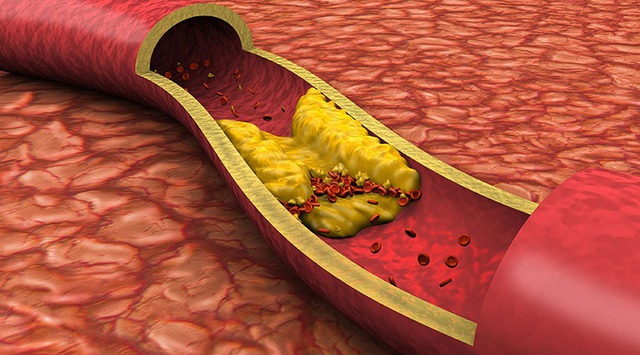Silent killer!
Blood is a cellular organelle consisting of tangible components such as cells and plasma, which circulates from arteries, veins, and capillaries to tissues and performs many physiological functions.
The viscosity of blood will affect the ability of blood to circulate in the body. This condition can cause many complications depending on the location and extent of the blood clot. In particular, if this blood clot moves to and causes an embolism in the brain and heart, causing a stroke, it can take a life at any time.
What is hyperviscosity syndrome?
Hyperviscosity syndrome is a condition that makes it impossible for blood to flow freely through the arteries. In this syndrome, blockages in the arteries can occur due to too many red blood cells, white blood cells, or proteins in the blood. It can also occur when the red blood cells are abnormally shaped, such as sickle cell anemia.
Increased blood viscosity occurs in both children and adults. Specifically, in children, the disease can affect growth by reducing blood flow to vital organs such as the heart, intestines, kidneys, and brain. In adults, this syndrome can be seen with autoimmune diseases such as rheumatoid arthritis or lupus erythematosus; or co-occur with blood cancers such as lymphoma and leukemia.

Hyperviscosity syndrome can cause symptoms of dizziness, chest tightness…
Symptoms of increased blood viscosity
Symptoms associated with this condition include headaches, seizures, and a red skin rash. If a newborn is unusually sleepy or unwilling to feed, this is a sign that something is wrong.
In general, the symptoms associated with this condition are the result of complications that occur when vital organs do not receive enough oxygen from the blood. Other symptoms of hyperviscosity syndrome include:
Abnormal bleeding
Visual disturbances
Dizzy
Chest tightness, difficulty breathing
Convulsions
Comatose
Difficulty walking
In addition, newborns may experience problems such as jaundice, kidney failure or respiratory problems.
Causes of hyperviscosity syndrome
Hyperviscosity syndrome is diagnosed in infants when the red blood cell count is above 65 percent. Causes of neonatal illness may be due to abnormalities arising during pregnancy or labor, including: Delayed clamping of the umbilical cord; diseases inherited from parents; genetic problems, such as Down syndrome; gestational diabetes…

Hyperviscosity syndrome can be seen in both adults and children
In addition, the disease can also be caused by not having enough oxygen supply to the tissues in the fetal body. Twin-to-twin transfusion syndrome – a condition in which twins do not receive the same amount of blood in the uterus is a prime example.
Hyperviscosity syndrome can also be caused by disorders in the production of blood cells, including: Leukemia, blood cancer that leads to too many white blood cells; polycythemia vera, a type of blood cancer that results in too many red blood cells; primary thrombocythemia, a blood condition that occurs when the bone marrow produces too many platelets in the blood; myeloproliferative disorders, a group of blood disorders that cause abnormal numbers of certain blood cells to displace healthy cells in the bone marrow and often lead to severe anemia.
In adults, hyperviscosity syndrome usually manifests itself when the blood viscosity is 6 to 7 times higher than that of saline (in normal people, the blood viscosity compared to saline is 1.6 to 1 ,9).
Who is at risk for hyperviscosity syndrome?
The disease usually affects infants, but can also affect adults. The severity of the disease depends on the cause.
Young children are at higher risk of developing this syndrome if there is a family history of the condition. In addition, people with a history of severe bone marrow disease are also at higher risk of developing this syndrome.
Vietnam Institute of Applied Medicine; Healthline
at Blogtuan.info – Source: cafebiz.vn – Read the original article here




